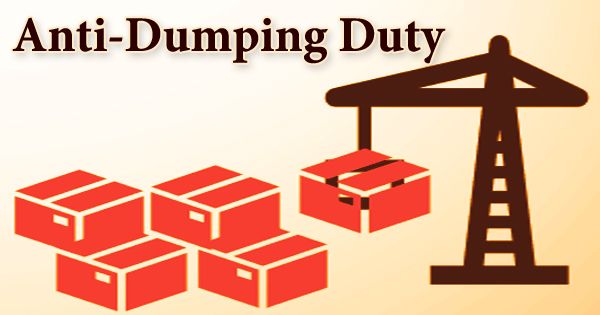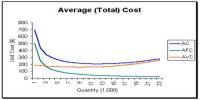In general, dumping is a situation of international price discrimination where the price of a commodity is lower than the price of that product on the market of the exporting country when it is sold in the importing country. An anti-dumping duty is a protectionist tariff levied on foreign goods by a domestic government which it considers to be priced below fair market value. The government imposes an anti-dumping duty on foreign imports if it finds that, by low rates on the domestic market, the goods are being dumped. Thus, one detects dumping in the simplest of cases simply by contrasting prices in two markets. Indeed, anti-dumping duties are levied in order to protect local industries and markets from unfair foreign import competition.
The World Trade Organization (WTO) a global association that manages the principles of exchange between countries likewise works a bunch of worldwide exchange rules, including the global guideline of hostile to unloading measures. The duty shall be priced in a sum equal to the difference between the usual cost of the goods in the importing country and the market value of the products in question in the exporting country or in the other producing country of the same kind. The anti-dumping duty could be anywhere from 0 percent to 550 percent of the products’ invoice value. To secure their separate economy, numerous nations force obligations on items they accept are being unloaded in their public market in light of the fact that these items can possibly undermine neighborhood organizations and the nearby economy.
Some governments often respond harshly by imposing punitive anti-dumping duties on foreign products to foreign companies engaged in dumping activities, and the WTO can decide whether the action is genuine or whether it is contrary to the principle of the WTO free market. An autonomous government body, the International Trade Commission (ITC), is charged with enforcing anti-dumping duties in the U.S. Their actions are based on recommendations they receive from the U.S. Department of Commerce and investigations by the ITC and/or the Department of Commerce.
As per the WTO Anti-Dumping Agreement, unloading is legitimate except if it takes steps to cause material injury in the bringing in country’s homegrown market. Likewise, the association disallows unloading when the activity causes material impediment in the homegrown market. The duties levied on such goods surpass, in certain cases, the value of the goods. Usually, anti-dumping duties are imposed when a foreign corporation sells an item substantially below the price at which it is made. Where unloading happens, the WTO permits the public authority of the influenced nation to make a legitimate move against the unloading country as long as there is proof of real material injury to enterprises in the homegrown market.
Anti-dumping duties will minimize foreign competition between domestic companies producing similar products in the long term. The government must demonstrate that dumping has taken place, the nature of the cost-related dumping and the damage or danger to the domestic market causing injury. All in all, the WTO understanding licenses governments to act against unloading “in the event that it causes or compromises material injury to a set up industry in the domain of a contracting party or really hinders the foundation of a homegrown industry.” The WTO Anti-Dumping Agreement enables governments to act in a manner that does not discriminate between trading partners and, when calculating the duty, respects the principle of DATT 1994.
GATT 1994 sets out a range of fundamental principles applicable to trade between WTO members, including the concept of the “most-favored-nation.” It additionally necessitates that imported items not be dependent upon inward expenses or different changes in abundance of those forced on homegrown merchandise, and that imported products in different regards be agreed treatment no less positive than homegrown products under homegrown laws and guidelines, and sets up standards with respect to quantitative limitations, charges and conventions identified with importation, and customs valuation. However, if they surpass the bound rates and threaten to cause harm to the domestic economy, it enables the government to place a duty on foreign imports.
In order to manipulate the market, anti-dumping duties have the potential. Governments usually cannot decide, in a free market, what constitutes a fair market price for any product or service. All WTO Members are needed to bring their enemy of unloading enactment into similarity with the Anti-Dumping Agreement, and to advise that enactment to the Committee on Anti-Dumping Practices. There are many ways in which it can be calculated if the imported commodity was lightly or heavily dumped and the amount of duty to be applied. The first approach is to measure the anti-dumping duty on the basis of the product’s usual price.
The subsequent option is to utilize the cost charged on a similar item however in an alternate country. The last option is to figure the obligation dependent on the all-out item expenses, costs, and the maker’s net revenues. The Agreement demands that a dumping margin be determined for each exporter when anti-dumping duties are imposed. Notwithstanding, it is perceived that this may not be conceivable on the whole cases, and subsequently the Agreement permits exploring specialists to restrict the quantity of exporters, merchants, or items separately considered, and force hostile to unloading obligation on uninvestigated sources based on the weighted-normal unloading edge really settled for the exporters or makers really inspected.
Information Sources:















